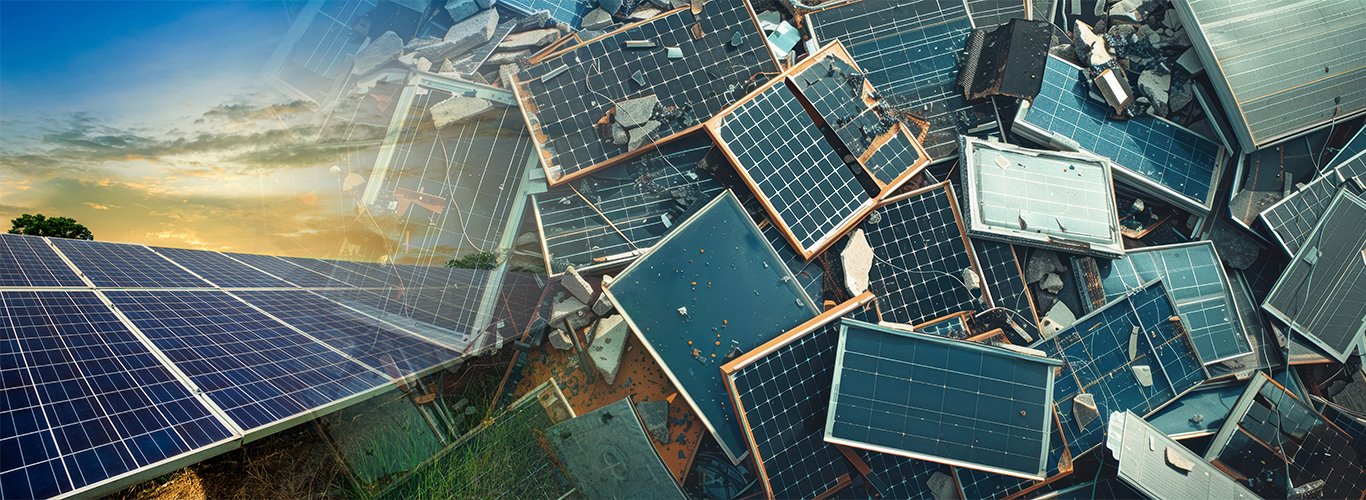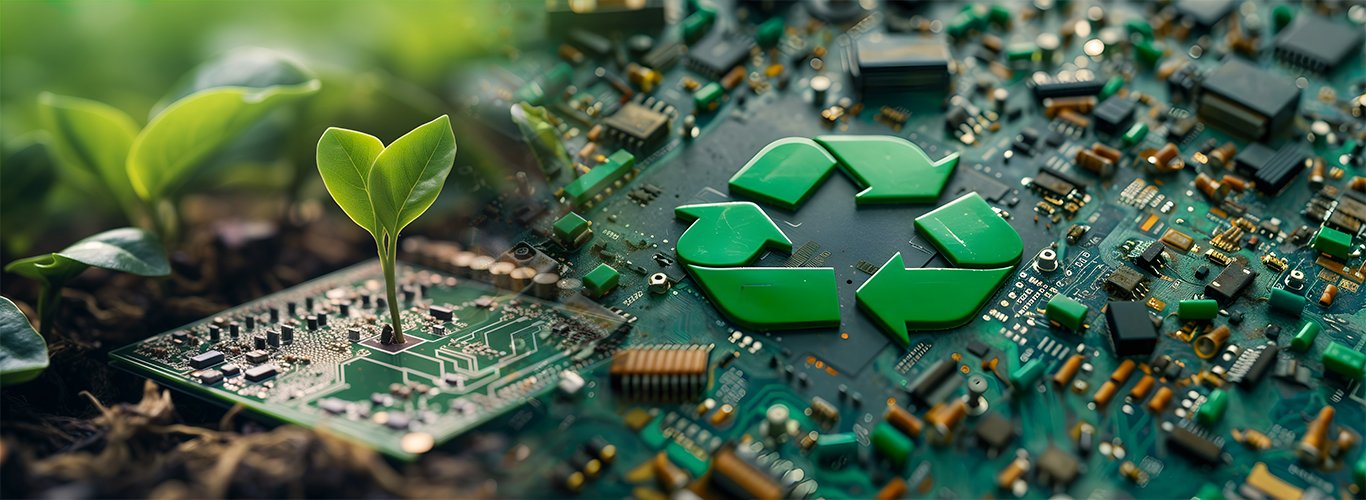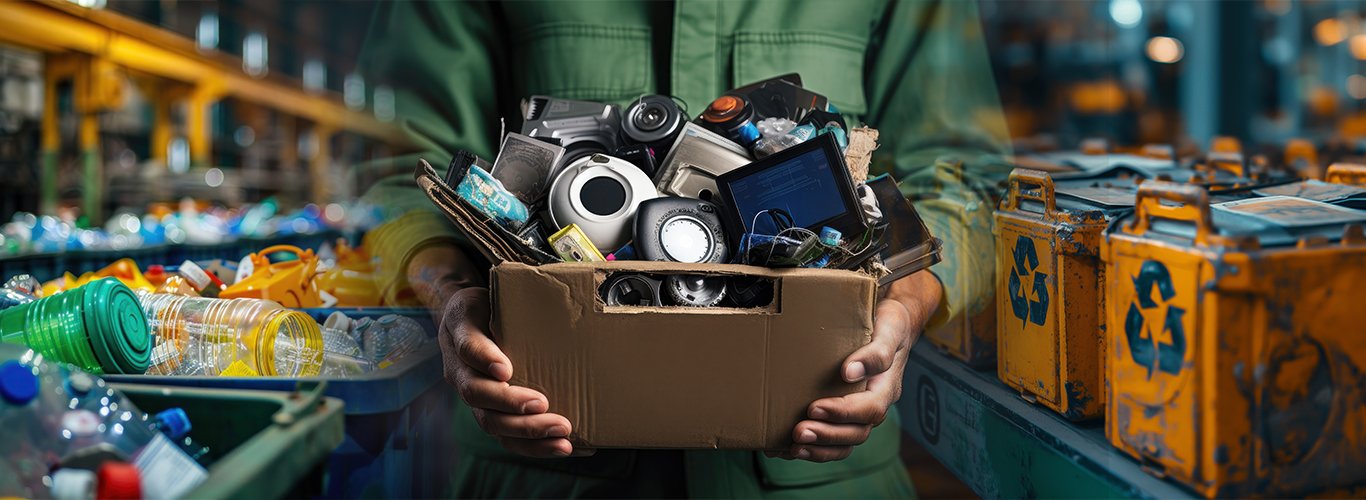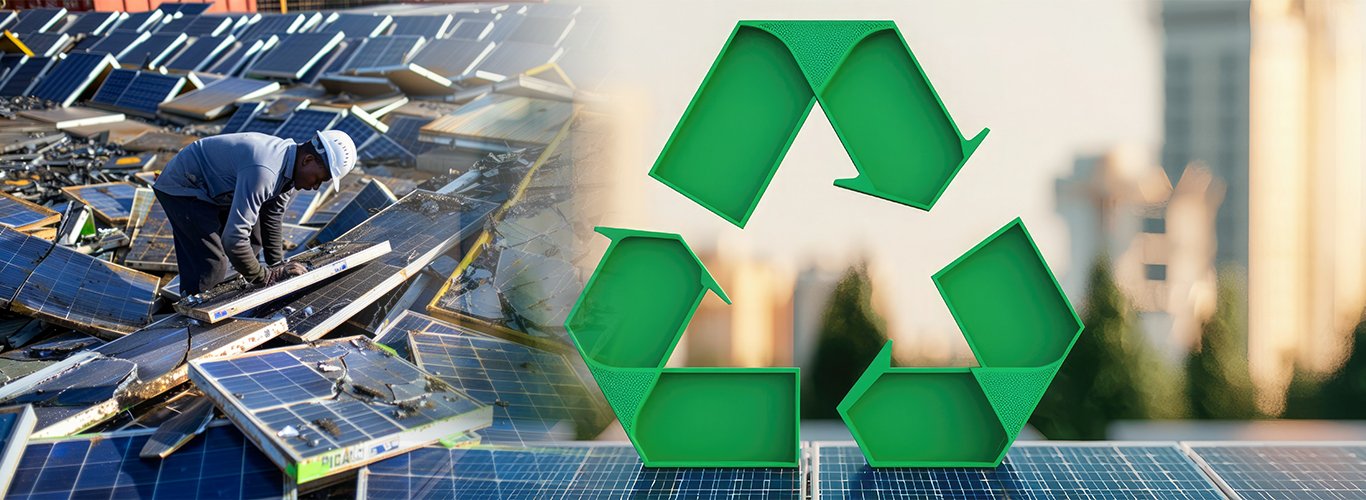
Solar Energy Waste: The up-and-coming waste
Solar power is essential in the process of energy transitioning India into a low-carbon society. Solar energy is one of the most sustainable solutions to climate change and one on the path of freeing itself from fossil energy sources. However, the rise of solar energy has brought with it a growing environmental concern: solar energy waste. Indian solar power production has gone high, but they are left with wastes that may turn into hazardous wastes in the future if proper solutions for their management are not adopted.
Understanding Solar Energy Waste
Typically, solar panels have a life expectancy of 25–30 years. After this period, they reduce their performance and should be replaced or redeployed for reuse. At present, the majority of the installations in India are small plants established recently, and, by 2030 and beyond, a great number of these tiles will be at the stage of their end of life and require replacement, resulting in the production of solar energy waste on a commercial scale.
Most of the waste originates from photovoltaic (PV) panels, which are constituted of glass, aluminium, silicon, and a blend of toxic materials such as cadmium and lead. There is the danger that these panels end up polluting the environment once disposed of incorrectly. For example, if not disposed of well, cadmium and lead have a tendency to pollute the soil and groundwater, leading to filthy health problems.
Solar Power Growth in India: The Numbers
India has recorded an increase in the generation of solar energy as one of the ways of embracing the use of renewable energy sources. The nation has set a target of attaining 500 GW of non-fossil fuel-based capacity by 2030, and solar power is part of this plan. India has installed more than 70 GW of solar capacity, making the country one of the largest solar markets globally.
However, this development is likely to present the country with a colossal problem of handling solar energy waste from such installations in the future. It is projected that India may produce around 2,50,000 metric tonnes of solar panel waste by 2030, which can climb up to 2 million metric tonnes by 2050 if efficient solar waste disposal systems are not developed.
The Challenges of Recycling Solar Panels
It is essential to know that solar waste disposal is not as easy as it sounds. Currently, no more than five percent of panels installed worldwide still work, and, due to intricate and expensive processes, few are recycled. The recycling of solar panels is still in its nascent stage, and the recycling factor of any solar PV panel is that most of the constituent material is either challenging to reclaim or recover profitably.
However, in India, there are no proper policies or structures for solar waste disposal, which contributes to this problem. The country currently does not have suitable environmentally sound facilities for the recycling of solar panels, and the existing legal structure has a low number of rules that would require proper disposal and recycling of solar energy waste.
Environmental Risks of Neglecting Solar Waste Management
If India fails to tackle the problem of solar panel waste management, then the damage to the environment will be monumental. Dumpsites containing dumped solar equipment could cause the leaching of toxic chemicals into the groundwater and could affect the environment and people living around them. Thirdly, it also pointed out that an unorganized manner of solar waste disposal may aggravate the already complicated issue of e-waste in the country.
The Way Forward: Solutions for Managing Solar Waste
To tackle the growing issue of solar energy waste, India needs to develop a comprehensive strategy that includes the following key components:
Establishing a Solar Panel Recycling Industry
India especially has to harness the idea of an independent solar waste disposal hub to develop the required expertise locally. This will entail a great deal of technological progress and capital expenditure to facilitate environmentally sound and relatively low-cost recycling systems.
Regulatory Frameworks
The government needs to come up with policies that require that manufacturers and operators of solar panels be the ones who take responsibility for the end-of-use disposal of solar panels. The implementation of new formal policies can be done, such as the extended producer responsibility (EPR) that shows manufacturers as being fully responsible for the product throughout its lifecycle.
Public-Private Partnerships
Government, private, and public institutions should partner in designing recycling technologies and infrastructure for solar panels. Such a partnership can create synergy that would help speed up the innovation of new technologies as well as bring down the cost of recycling.
Incentives for Recycling
Royalties for component recycling could motivate not only manufacturers of these panels but also their users to apply proper and environmentally friendly disposal. It may very well be possible to give subsidies, tax holidays, or other incentives that can make recycling worth it.
Awareness and Training
It is imperative to increase individuals, producers, and other parties that are in the energy business understand the concern of the massive wastage of solar power. It can also be suggested to launch training programs to improve the abilities of personnel to transport and recycle solar panels.
Conclusion
Even though solar energy is a clean source of energy, the problem of solar power waste is becoming one of the environmental concerns that India cannot ignore. Insufficient regulation of solar waste threatens to erase the advantages of solar energy and introduce new eco-waste. The best practice to achieve this in India is by striving to embrace the solar power revolution without creating a dump for the same. India can take the lead in the environmentally sustainable management of solar power waste by investing in recycling, with requirements accompanied by punitive measures for non-compliance. Encourage decentralized innovation and research and development advancements. Deshwal Waste Management is the up-and-coming solution for your waste.
Like what you’ve read? Subscribe to our newsletter!





